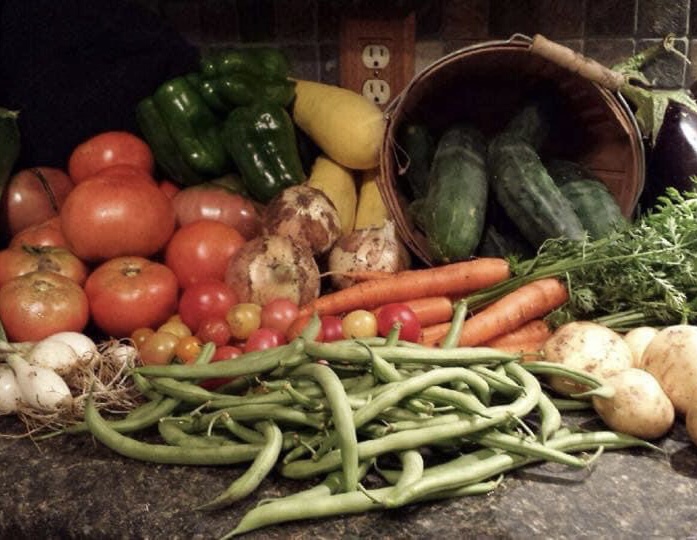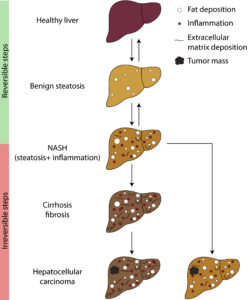More and more people are turning to fresh, local options for produce and other items as locally-sourced food has become a mainstream trend. More restaurants also acquire locally grown ingredients and refer to this practice as a farm-to-table process. Find out the 6 benefits of eating locally sourced foods.

Purchasing and eating local produce means consuming more goods from farmers and producers in your community. Also, it has several benefits, including environmental, economic, social, and health advantages. This article will further explain why you must start eating locally-sourced foods. For your liver health, and for your whole body, keep reading.
Why Should You Care About Local Food?
The word “local food” doesn’t have a specific definition. However, a typical meaning of “local” food is food produced within 100 miles of the location of consumption or sale.
Think about what purchasing locally-produced food means to you. It may refer to foods produced and farmed in your state or region. It could be that it was grown by farmers you are familiar. For example, start with a local farmer you can communicate with. The produce purchased at a farmer’s market or through a community-supported agriculture program are one way. And for some people, the concept of “local” refers less to a particular geographic configuration and more to the ideals of small-scale and community-based.
More and more people are interested in where their food comes from and the practices farmers do to produce it. It is significant because it facilitates the formation of a bond with food, helps you pay more attention to what you put into your body, and allows you to support the foods and producers who share your values.
6 benefits of eating locally sourced foods
Support Your Neighborhood by Shopping Locally
When you buy locally farmed food, your money stays close to home and supports local businesses instead of third- or even fourth-party international entities. Growth pervades the area in all directions the more money that stays local.
Local Food Is Fresher
Local food is undoubtedly more nutrient-dense, tastes better, and is fresher. Most local products at a farmer’s market are freshly-picked, guaranteeing its food quality, is ripe and has reached its peak nutritious density. Contrarily, most produce in supermarkets is collected days or weeks before you see them on shelves.
You need to understand that a food’s nutritional value starts to decline as soon as it is harvested. This is especially true for the vitamins C, E, A, and some B. Of course, produce that has traveled still has nutritional value. However, a fruit or vegetable’s vitamin content will increase with its freshness. For example, apples from nearby farms are fresher and better for eating than those flown in from international countries despite looking great on the grocery store shelf.
Promotes Mindful Eating
When you know nothing about where your microwaveable meal came from, its producers, and the process it took to get to your plate, it’s simple to devour it. But when you buy locally, you are more aware of the food you consume; you know who grew it, what farm it came from, and precisely how it was transported from farm to table.
The who, where, when, how, and why of our meals are just as essential as, if not more so, the food itself when it comes to mindful eating. You become more aware of your food and its effects on your body when you shop and eat locally. Plus, this allows you to make easy snacks at home without feeling guilty after.
Produce Less Waste
Buying locally reduces waste generation, forcing food to travel a shorter distance from farm to table. Purchasing locally results in less packaging used in transit and shipping. This also reduces pollution-related environmental and food waste. Whether buying a CSA from a nearby farm or making purchases at the weekly farmer’s market, food packaging is not used. It ensures that the food is transported straight from the farm to you, reducing emissions and food waste.
Supports Sustainable Agriculture
Eating locally promotes agricultural diversity and local agriculture’s diversification. In turn, this lessens the reliance on monoculture, in which a single crop is produced across a large area at the expense of the soil. Although strawberries are known to contain high quantities of vitamin C, the level (and their freshness) greatly depends on the quality of the soil in which they are cultivated. In reality, our food is only as nutrient-dense as the soil in which it is grown.
Provides for Your Seasonal Needs
The seasonal food cycle is precisely engineered to support your health when you eat locally and depending on the seasons. Go back to the fundamentals of life, and think about how we used to eat. Before modern grocery stores, we simply consumed whatever was in season at the time. Eating by the seasons is one of the healthiest and most natural ways. When the temperature is at its highest, our bodies need cooling foods like fresh fruits, vegetables, and berries to help us withstand the elements. At the same time, during the chilly, gloomy winter months, we want warming, high-fat foods, fermented foods, and root vegetables.
Try eating according to the seasons. This also makes it easier to avoid eating the same item all year. Eating the same food is not the best option for your health. Based on our geographic location, our local seasons offer the best foods for our body’s natural demands.
Bottom Line
The connection you develop with your food is the greatest of the many benefits of eating locally-produced food. You may reconnect with food. You will understand the value of real food and how it affects your body as you eat more locally. We can all agree that it is crucial to support local farmers today. That ensures there will still be local farms in your town tomorrow. Now you know the6 benefits of eating locally sourced foods.
Thanks to my friend and guest blogger Katie Pierce.





